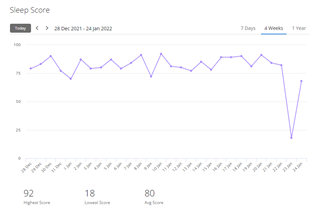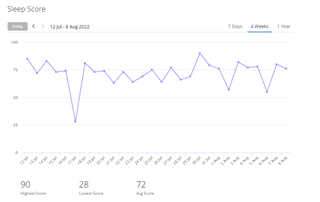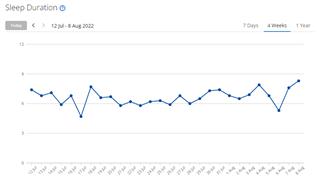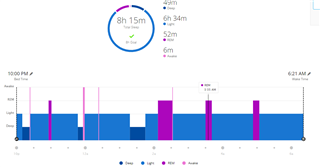I held off the sports watch thing until the Epix2 launched. I mountain bike, snowboard and have a general interest in trying to get fitter while having all the pressures of work and kids.
I'm finding a few things with the Epix2
-
Sleep score is pointless. I rarely drink, try to eat well, exercise a little (injuries, winter in the north east, time etc) yet my sleep score is - 95% of the time - poor. I've read and tried to apply all the advice to try to increase this but nothing works.
-
Body battery. Can't really say this aligns to how I feel particularly, I've had days where I've felt great with low body battery scores and vice versa. I see people commenting about being careful of taking too much notice of this and can see why.
-
Trending data. This may be user error but I'm not seeing good implementations of trending from my daily information. I see lots of daily point in time information but that's of little use with a month or so of data (so far).
I haven't been able to get out on my bike yet with it too see what kind of data I can get from that, but so far this might not be the right tool for me. What am I missing?








